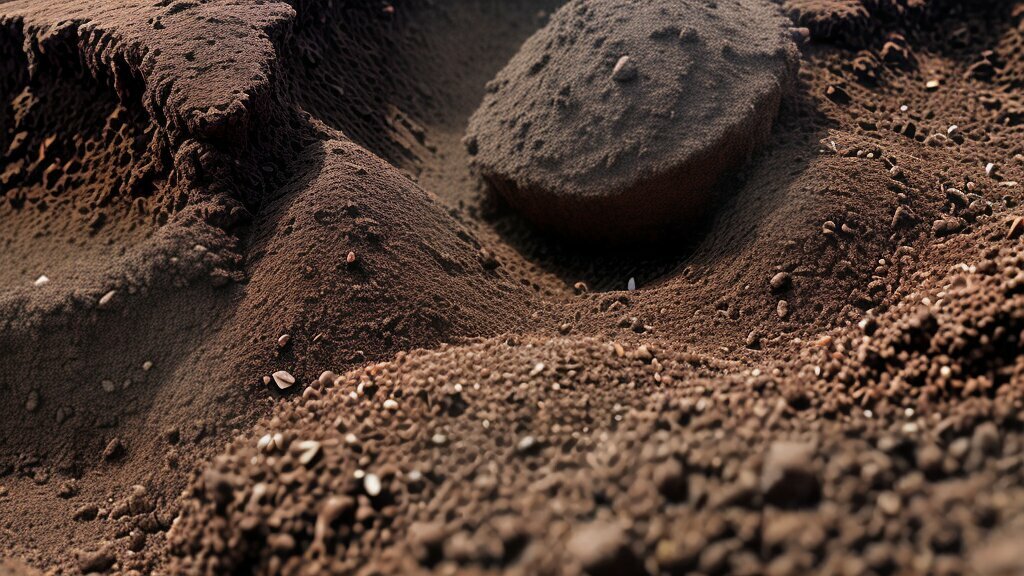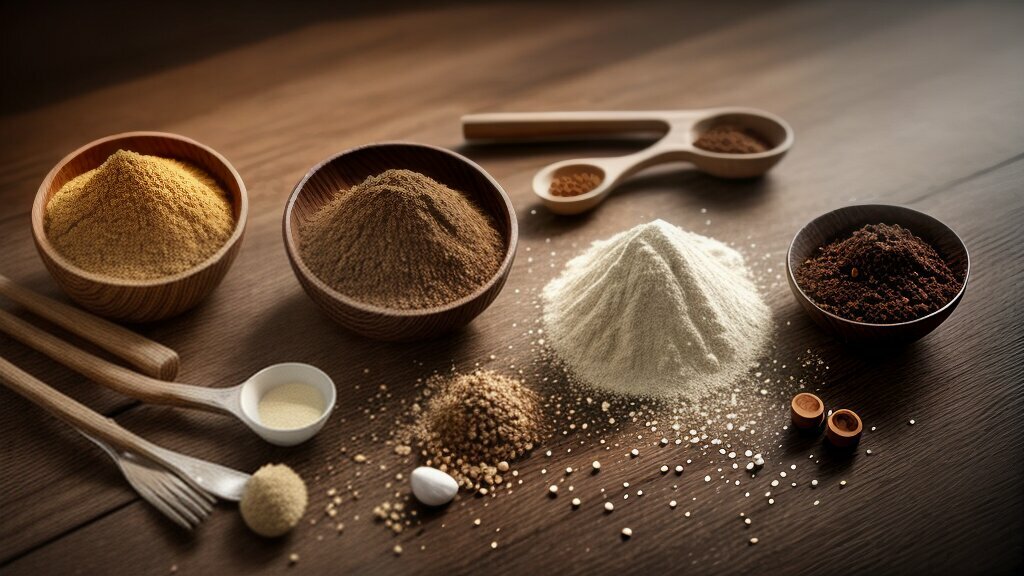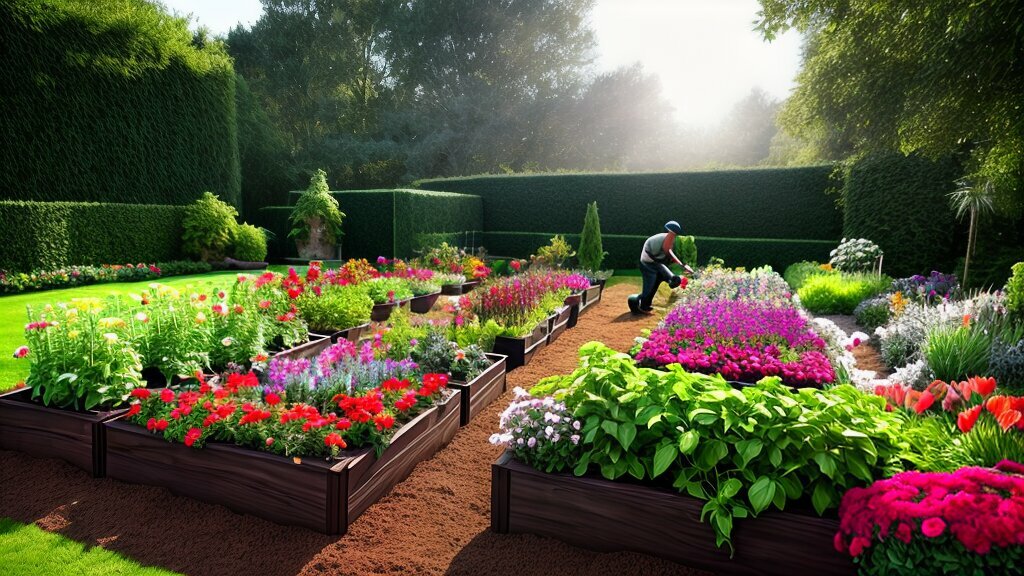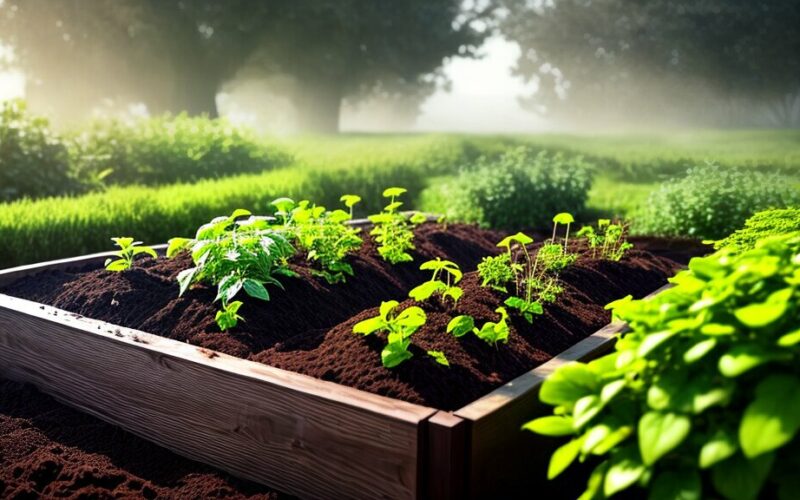Are you wondering what soil mixture is best for your raised beds? Choosing the right soil mixture is crucial for the health and productivity of your plants. Fortunately, with some knowledge and a bit of effort, you can create the perfect soil mixture for your raised beds.
Raised bed soil is specifically designed to provide the ideal growing conditions for your plants. Unlike traditional garden soil, raised bed soil typically contains a blend of organic materials that promote good drainage, nutrient availability, and plant growth.
In the following sections, we will explore the benefits of using raised bed soil, discuss the different components that make up an ideal soil mixture, provide recipes for nutrient-rich soil mixtures, and offer a final recommendation for achieving optimal results in your raised bed gardening endeavors.
Key Takeaways:
- The right soil mixture is crucial for the health and productivity of your plants in raised beds.
- Raised bed soil provides better drainage, increases nutrient availability, and promotes healthier plant growth.
- Using organic soil and creating your own homemade soil mix can improve soil fertility and structure.
- Recipes for nutrient-rich soil mixtures can be tailored to meet the specific needs of your plants.
Benefits of Using Raised Bed Soil
If you’re considering using raised beds for your garden, it’s important to choose the right soil mix. Using a specific soil mix can have several benefits for your plants and overall garden health.
Improved Drainage
Raised bed soil typically contains materials that provide better drainage than regular garden soil. This is because raised beds are often filled with a mixture of coarse sand, peat moss, and vermiculite that helps excess water drain quickly.
| Regular Garden Soil | Raised Bed Soil |
|---|---|
| Clumpy and dense | Light and fluffy |
| Less drainage | Better drainage |
Increased Nutrient Availability
Raised bed soil often contains added nutrients that benefit plant growth and health. This is because the soil in raised beds is typically a mixture of different organic materials that provide a nutrient-rich environment for plants.
“Raised beds filled with nutrient-rich soil allow plants to grow faster and more efficiently than plants grown in regular garden soil.”
Healthier Plant Growth
Using raised bed soil can lead to healthier plant growth overall. The improved drainage and nutrient availability mentioned above can help plants grow faster and produce more fruit or vegetables. Additionally, raised beds can prevent soil compaction, which can reduce plant root growth and lead to a weaker overall plant.

Overall, using raised bed soil can have significant benefits for your garden and plant growth. Consider using a specific soil mix designed for raised beds, or even creating your own using organic materials for the best results.
Choosing the Right Soil Components
Creating the perfect soil mixture for your raised beds requires careful consideration of the different components that make up the mix. By using the right combination of organic materials, you can ensure that your plants receive the necessary nutrients for healthy growth and development.
The Importance of Organic Soil
Organic soil provides a range of benefits for raised bed gardening. Not only does it promote healthy plant growth, but it also helps to increase soil fertility, improve soil structure, and retain moisture.
When selecting organic soil for your raised beds, look for options that include a mix of compost, peat moss, and vermiculite or perlite. These components work together to provide plants with the necessary nutrients, while also improving soil drainage and aeration.
Creating Your Own Homemade Soil Mix
If you prefer to create your own soil mix for raised beds, there are several components that you can combine to achieve optimal results. These may include:
- Compost – a nutrient-rich source of organic matter that helps to improve soil fertility
- Peat moss – helps to retain moisture and maintain soil pH levels
- Vermiculite or perlite – improves drainage and soil structure while retaining moisture
- Worm castings – a natural fertilizer that provides essential nutrients for plant growth
By using a combination of these organic materials, you can create a custom soil mix that meets the specific needs of your plants.

Tip: When creating your own soil mix, be sure to use high-quality, organic materials to ensure the best possible results. Avoid using soil from your garden, as it may contain pests or disease that can harm your plants.
Recipes for Perfect Soil Mixtures
Creating the perfect soil mixture for your raised bed can seem overwhelming, but with the right ingredients and ratios, it’s easy to achieve. Here are three recipes for nutrient-rich soil mixtures that will keep your plants happy and healthy:
| Recipe 1: Basic Mix | Recipe 2: Nutrient Boost | Recipe 3: Organic Bliss |
|---|---|---|
|
|
|
Recipe 1 is perfect for those on a budget or looking for a simple solution. For an added nutrient boost, recipe 2 includes perlite, vermiculite, and coconut coir, which improve drainage and increase root growth. Recipe 3 is the ultimate organic mix, featuring peat moss, worm castings, and compost for a nutrient-packed blend.
Regardless of which recipe you choose, make sure to mix the ingredients thoroughly and aerate the soil before planting. You can also add additional amendments such as bone meal or blood meal for extra nutrients.
 Image: a person mixing soil in a raised bed garden.
Image: a person mixing soil in a raised bed garden.
Conclusion
Congratulations! You now have a solid understanding of how to create the perfect soil mixture for your raised beds. Remember, choosing the right soil components is the key to a successful garden.
By utilizing the benefits of raised bed soil, you will improve drainage, increase nutrient availability, and promote healthier plant growth. Additionally, using organic soil and homemade soil mixtures will provide even greater benefits for your garden.
We hope that the recipes for nutrient-rich soil mixtures will inspire you to experiment and find the perfect combination for your garden’s specific needs. Don’t be afraid to get creative and try different organic amendments!
So, what soil mixture will you choose for your raised beds? We recommend taking into consideration the specific needs of your plants, and experimenting with different soil mixtures until you find the perfect one. Happy gardening!





